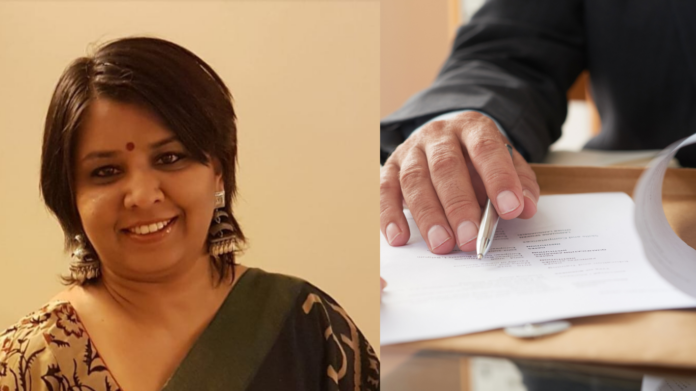Online Dispute Resolution, popularly known as ODR, is an enhanced form of Alternate Dispute Resolution (ADR) that uses technology to facilitate the resolution of disputes between parties. And while all of us have more or less heard of the concept, there’s one particular aspect of this dispute resolution process that most of us are unaware of, i.e., Document Only Arbitration.
Now, as the name suggest, the disputed parties agree to find a conclusion without any oral hearing. Therefore, arbitrator(s) review the written documents submitted by the disputed parties and base their judgment on these statements. There’s no oral pleadings, testimony or evidentiary hearing in place. In fact, all pleadings, evidences, and statements to be made are solely in written form. Talking about CADRE’s approach to documents-only arbitration, Kanchan Gupta, Founder, says,
“The moment the case is put in the system it is already started. Automated communication and automated dispute resolution has already started. And because there’s no hearing, there’s no schedule, so we have been able to resolve disputes within 30-45 days.”
Talking about the entire Online Dispute Resolution process, Kanchan emphasizes how the mechanism significantly brings down the costs of the entire process and makes use of technology to “make this process simpler, fairer, more transparent, faster, and cost effective”.
It is mainly the shorter time frame and elimination of a physical hearing that brings down the expenses of hearing, and other overhead expenditures such as conveyance costs. Not only this, document-only arbitration, and online dispute resolution in general, adds values to not just lives of parties involved but also serves a greater purpose- that of reducing the carbon footprint. Discussing the integration of this philosophy in CADRE’s work culture, Kanchan states,
“There’s a significant reduction of carbon print. In fact, we ran a campaign during our early days saying ‘Justice needs no paper’. And given that we are even ordering our groceries online, why can’t dispute resolution be done online. If a loan can be given online, why can’t a dispute related to loan be solved online.”
For someone who started off with Cognizant and went on to work with other organizations, gaining hands on experience with technology, to be having such clarity regarding legal concepts, Kanchan reveals how she’s resorted to “self-teaching” and was determined in her head about there being some solution that can be built to overcome the problems of alternative dispute resolution.
Rounding up, in Kanchan’s words, “Dispute Resolution is neither a legal problem to be solved nor a tech problem to be solved. Legal gives the framework and tech is the vehicle through which we solve the problem.” This certainly, forms the core of ODR’s philosophy, and CADRE is one of those organizations that has recognized this quite well, moving toward the ‘direction of the future’ early on, being changemakers and trendsetters in the industry.
About the Founder
Kanchan Gupta, Founder, CADRE, is a proud mompreneur who’s being involved in the legaltech space since 2018. An avid traveler and foodie, Kanchan’s passion toward her project reflects from the energy she brings in to the space and clarity in her thought process. With her strong belief in “user first, usability first” principle, Kanchan strives hard to democratize dispute resolution in India.
Watch the Full Interview of Kanchan Gupta, Founder of CADRE, Visit Link below-






